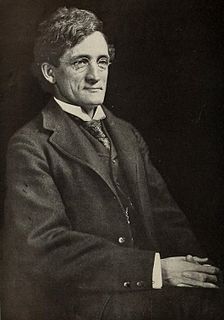A Quote by William Cowper
Thus happiness depends, as nature shows, less on exterior things than most suppose.
Related Quotes
It is naïve to suppose that the acceptance of evolution theory depends upon the evidence of a number of so-called "proofs"; it depends rather upon the fact that the evolutionary theory permeates and supports every branch of biological science, much as the notion of the roundness of the earth underlies all geodesy and all cosmological theories on which the shape of the earth has a bearing. Thus antievolutionism is of the same stature as flat-earthism.
It is in our own mind and not in exterior objects that we perceive most things; fools know scarcely anything because they are empty, and their heart is narrow; but great souls find in themselves a number of exterior things; they have no need to read or travel or to listen or to work to discover the highest truths; they have only to delve into themselves and search, if we may say so, their own thoughts.
love is thicker than forget more thinner than recall more seldom than a wave is wet more frequent than to fail it is most mad and moonly and less it shall unbe than all the sea which only is deeper than the sea love is less always than to win less never than alive less bigger than the least begin less littler than forgive it is most sane and sunly and more it cannot die than all the sky which only is higher than the sky
Nature. As the word is now commonly used it excludes nature's most interesting productions-the works of man. Nature is usually taken to mean mountains, rivers, clouds and undomesticated animals and plants. I am not indifferent to this half of nature, but it interests me much less than the other half.
I know no study that will take you nearer the way to happiness than the study of nature - and I include in the study of nature not only things and their forces, but also mankind and their ways, and the moulding of the affections and the will into an earnest desire not only to be happy, but to create happiness.
We often value the exterior and superficial aspect of things more than their inner reality. Bad manners taint everything even justice and reason. The 'how' of things matters most, and even the most disagreeable matters can be sweetened and gilded over with the proper appearance. Such is the bias and the weakness of the human mind.
Let the children learn to see in nature an expression of the love and the wisdom of God; let the thought of Him be linked with bird and flower and tree; let all things seen become to them the interpreters of the unseen, and all the events of life be a means of divine teaching. As they learn thus to study the lessons in all created things and in all life's experiences, show that the same laws which govern the things of nature and the events of life are to control us, that they are given for our good, and that only in obedience to them can we find true happiness and success.







































